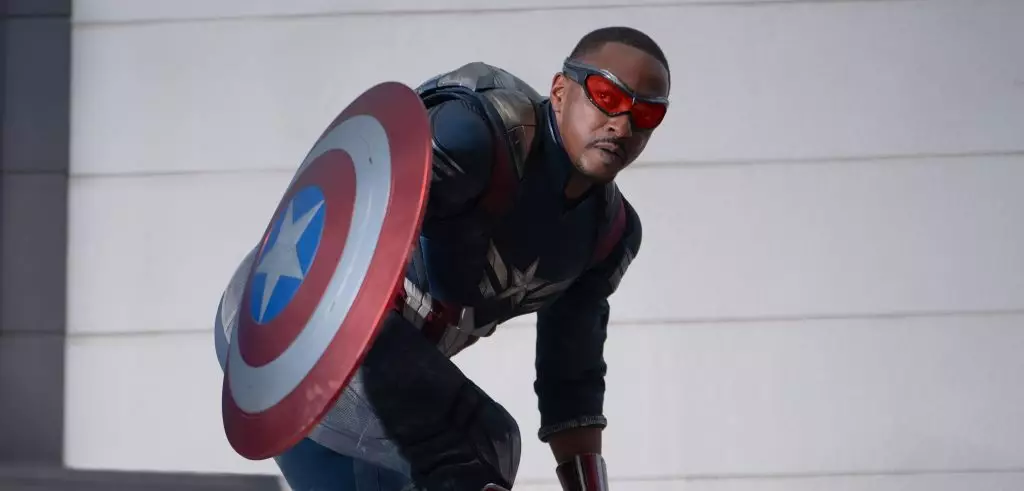The cinematic experience of “Captain America: Brave New World” exemplifies the intersection of weather variability, audience sentiment, and the complex dynamics of the Marvel Cinematic Universe (MCU). Despite inclement weather affecting multiple regions, the film’s launch displays a noteworthy $12 million haul during its Thursday previews, beginning at 2 PM. As audiences delve into the lore of the MCU, this dissecting of its box office performance raises intriguing questions about the franchise’s relevancy and audience engagement.
Box Office Comparisons: Contextualizing “Brave New World”
In the world of superhero films, box office numbers serve as the pulse of public interest. “Brave New World” has outstripped figures from its predecessor, “Captain America: The Winter Soldier,” which gathered $10.2 million in previews in 2014. Yet, it fails to approach the iconic $17.5 million amassed by “Ant-Man and the Wasp: Quantumania” earlier this year. This data suggests a varied landscape in audience enthusiasm as well as the potential to appeal to diverse demographics. Analysts predict an opening weekend estimate of $80 million, a figure that reflects a more tempered response compared to the heights previously achieved by Marvel films.
Unlike many of its predecessors that revel in multiverse narratives, “Brave New World” presents itself as a grounded narrative focusing on core themes rather than sprawling cosmic battles. This strategic choice may attract viewers disenchanted with the excessive multiverse complexity but poses a risk of alienating audiences seeking the grandiose spectacles typically characteristic of superhero epics. Central to the film’s promotional efforts is the introduction of Red Hulk, an element that resonates due to its coinciding launch with Valentine’s Day, suggesting an interplay of themes that could ultimately contribute to its success or failure.
Critics and audiences alike have weighed in on “Brave New World,” evidenced by a juxtaposition of a 52% critics score on Rotten Tomatoes against an audience score of 82%. This disparity reveals an essential dichotomy between film critics—who may prioritize filmmaking artistry—and general audiences, who evaluate emotional resonance and entertainment value. The division hints at the potential for evolution within the MCU. However, the prevailing critical sentiment suggests concerns about authenticity and storytelling, factors that frequently shape the success of any film in this expansive genre.
Social media engagement offers a further layer of contextual understanding, with “Brave New World” garnering 600 million interactions across platforms—an average figure in the superhero realm but notably trailing behind previous blockbusters such as “Deadpool & Wolverine,” which boasted a staggering 1.15 billion. These metrics underscore a lack of fervent promotion and broad-based excitement typically seen with high-profile releases. While the cast maintains a visible presence with sizable follower counts, the overall online chatter remains mixed. Some fans express skepticism; comments range from nostalgia for past Marvel films to apprehensions regarding the direction of the franchise.
As “Brave New World” opens amid ambivalence, it encapsulates the MCU’s ongoing evolution and the shifting landscape of audience expectations. While some viewers eagerly await the next chapter, fueled by nostalgia and character transitions, the mixed reactions indicate apprehension regarding the franchise’s creative trajectory. The inclusion of Sabra, whose character’s ties to geopolitical environments provoke debate, signals a push within Marvel to engage with timely social issues—an ambitious yet potentially divisive endeavor.
“Captain America: Brave New World” serves as a litmus test for the MCU’s future endeavors amid evolving audience tastes and cinematic storytelling standards. As the film navigates the currents of public opinion, its impact may reverberate beyond immediate box office numbers, setting a precedent for how superhero narratives adapt to the cultural zeitgeist. As the opening weekend unfolds, observers should remain vigilant in their analysis as it may elucidate the broader trajectory of the MCU and its engagement with the modern cinematic landscape.
